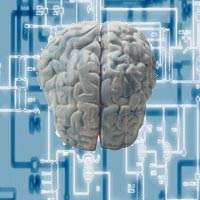Hi Gewis,
Most highly intelligent people have greater swings in mood than the rest of the population. As a neuroscientist I find that the method of action of most of the drugs currently being described for depression, bipolar disorder, ADHD, etc are far too clumsy (not too mention physicians being far too clumsy in their presciptions) for me to ever want to seek out a drug solution.
AgentNyder - I would have to say that the conditions being observed are definitely variations in the way brains metabolize energy and regulate their physiology, and this is almost all genetic. There is some very strong research into these differences. It is arguable whether they are disorders, but there is definitely differences in the way human brains operate, and I'm all for people trying to discover what gives them optimal functionality. Don't think of the brain as a static entity, it is constantly changing, and any interventions you make are likely to come with tradeoffs, but experimentation within the bounds of safety should be encouraged.
I probably am a classic ADHD, but I have learned to harness it through a combination of physical activity, diet, meditation, and by keeping many intellectual balls in the air at once, so I can quickly switch from one to the other without getting bored. I keep multiple goal streams working at the same time and check back on them periodically to see how I am doing. All this was kind of a pain in the butt to set up at first, but it really pays off once you have a system working for yourself.
Gewis - a small piece of advice, through my experiences with manic depressive friends, I have found that movement of any kind (physical or mental) is critical to their well being. As soon as you feel yourself starting to slip back into a funk, you should greatly increase your activity level. Daily physical activity in particular stabilizes physiology and energy metabolism and intensive mental activity will keep you from getting stuck in nonproductive loop behaviors. You have to shock your system out of those types of negative feedback cycles.
I agree with BJ on the excessive sugar and caffeine, and you can use those to your advantage as well. You just have to be willing to experiment with your own body to see what is optimal for you. I have found that a single, well timed cup of coffee each day can help me level out my energy levels. Take a mental note a few times a day of where you energy level is and relate that to what you drank and ate recently. Think of food as simply a very large source of drug intake

Half joking, half serious - I work on brain implants, and one of the possible future projects (~10 years) in the back of my mind is a human motivational implant. On a spooky note, I'm sure I could get the defense department to fund this in a heartbeat. They would love to see properly motivated soldiers running around the battlefield

Also, don't forget that it is us mentally irregular individuals who move culture forward. Without us mental anomalies at the edges of the bell curve, society would just stagnate and die. Normal literally means average, who wants to be average?

Best,
Peter
















































